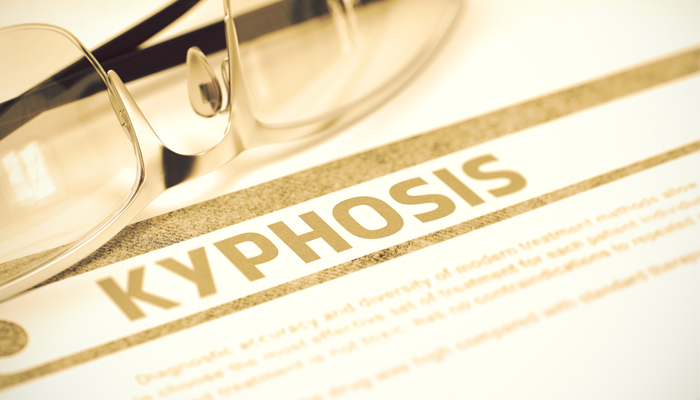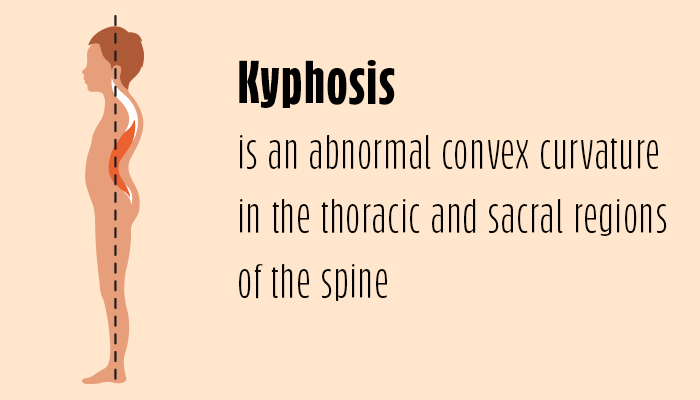In my last blog, I discussed chiropractic treatment and causes of Hyperlordosis. As promised, this blog will address Kyphosis. Kyphosis (from the Greek words κυφός kyphos, a hump) is an abnormal convex curvature in the thoracic and sacral regions of the spine. This makes the top of the back appear to be hunched over or referred to as ‘humpback’ in appearance.

We all have some degree of curvature to our spine, 45 degrees is the benchmark—over this and the curve is too much.
What are the Causes of Kyphosis?
- The number one culprit for kyphosis is poor posture or a lifestyle where you are constantly hunched over to do your work. This is also called postural kyphosis.
- Another reason is called Scheuermann’s kyphosis, which is a result of the vertebrae not developing properly and they can end up out of position.
- Age is unavoidable and when we get older—the spinal curve can increase. If an older person has developed Osteoporosis, this is a contributing factor to kyphosis.
- Spinal injuries can be a cause of kyphosis.
- The last reason why the spine curves is abnormal development of the spine in the womb. This condition is called congenital kyphosis.
Symptoms of Kyphosis
The obvious symptom is a hunched back appearance. What are not so obvious are the underlying problems as a result of this condition. Patients experience back pain, fatigue, stiffness and tenderness of the spine. In some extreme cases, it may become difficult to eat or breathe.
Chiropractic Care for Kyphosis
Chiropractic care is a great way to treat kyphosis with natural methods such as exercise, adjustment, and physical therapy. The good news is that some of the forms of this disorder can be treated and improved with chiropractic care, such as postural kyphosis. Unfortunately, kyphosis is usually not 100% curable. Chiropractic care addresses the symptoms, thereby greatly reducing them.
Proper posture is the easiest way to improve postural kyphosis. By being aware of your posture, sitting correctly, regular exercise and chiropractic adjustment. Your chiropractor may use other methods such as instrument-assisted manipulation; trigger spot therapy; ultrasound and interferential electrical stimulation.

If you have one of the other forms of kyphosis, not related to posture your chiropractor can help:
- Reduce pain
- Reduce inflammation
- Slow the process of degeneration in your back
- Increase flexibility in the spine
- Strengthen muscles
Chiropractic focuses on treating the patient all naturally after an accurate diagnosis. Contact me today to find out how chiropractic can help you feel better.

 Treatment and Causes of Hyperlordosis
Treatment and Causes of Hyperlordosis